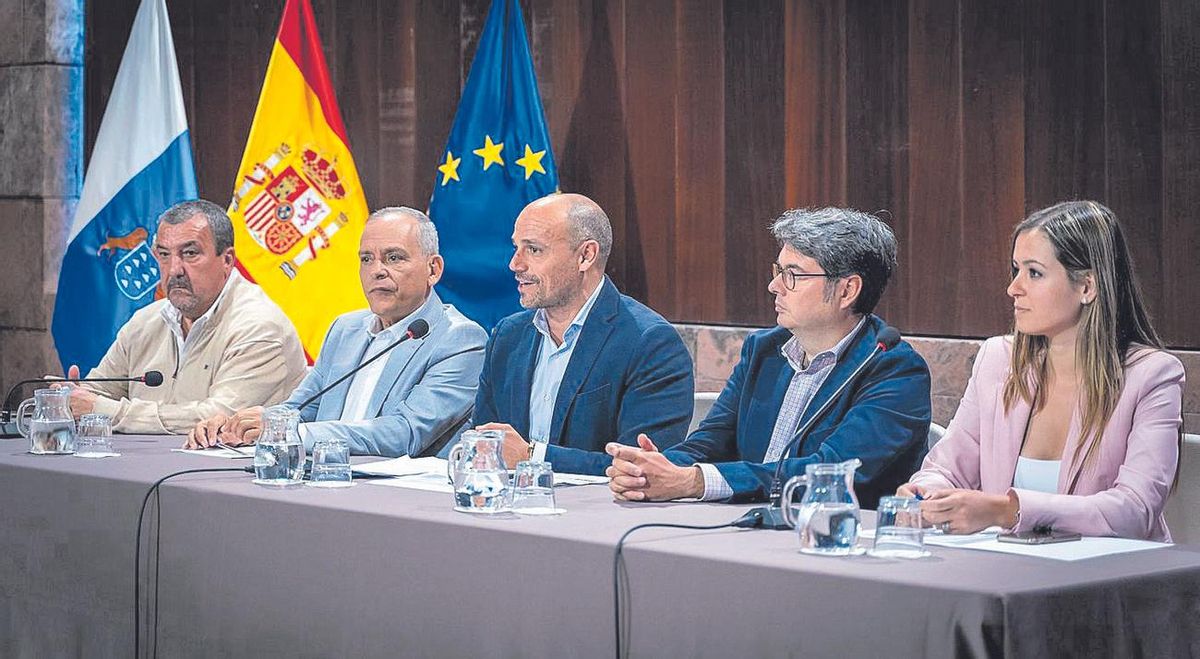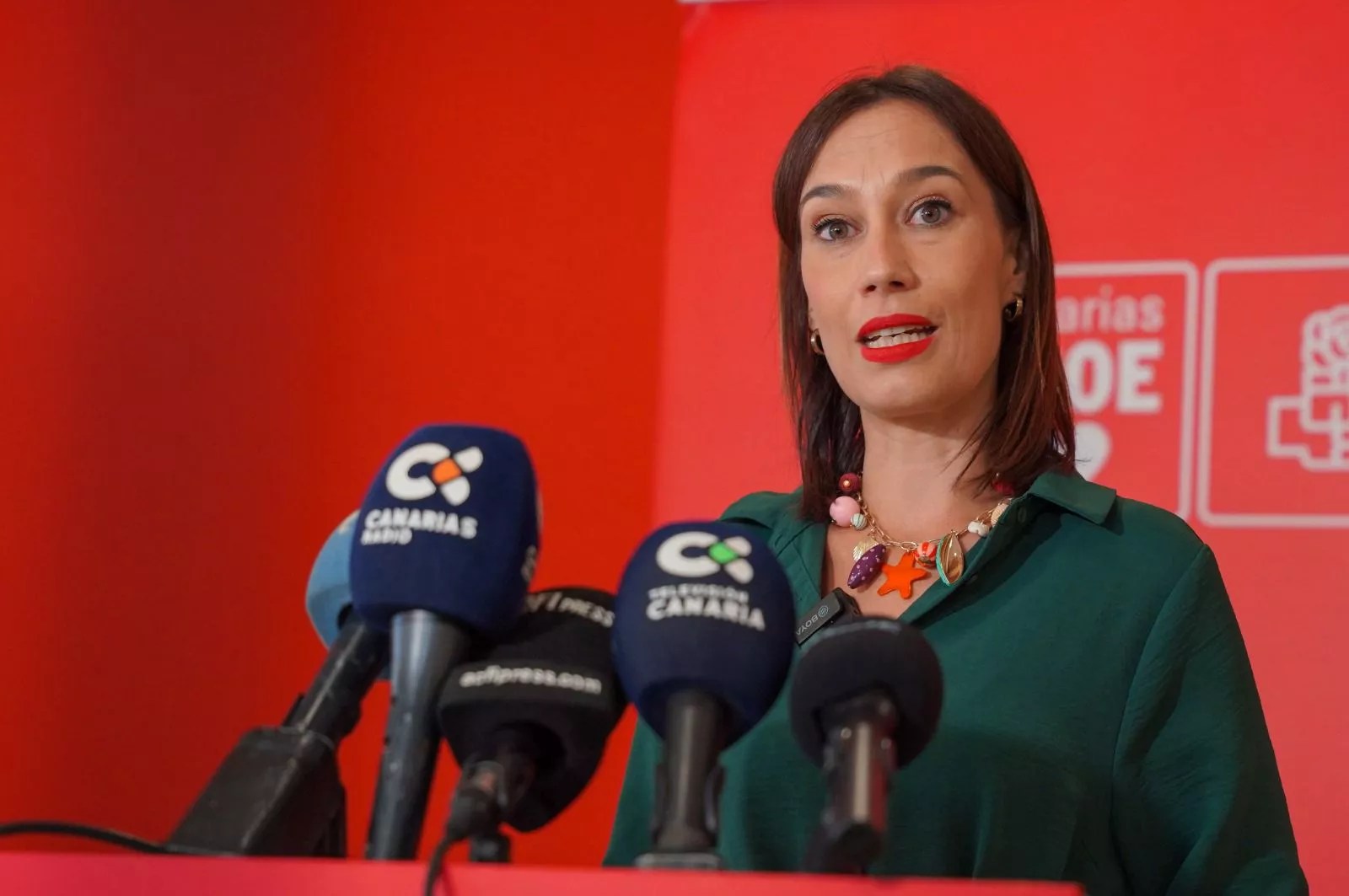“It is time for Canarian fashion to move out of the studios and into the shops.” This is how emphatic Alfonso Cabello, the Deputy Minister of Presidency and president of Proexca, is about his desire to boost the fashion sector of the Archipelago. This is why the brand Canarias, Isles of Fashion, has been launched, bringing together the creators of Gran Canaria Moda Cálida, Tenerife Moda, Lanzarote Moda and La Palma Isla Bonita to enhance “the talent and creativity” of the Islands.

Alfonso Cabello -center- with those responsible for the four most important fashion catwalks in the Canary Islands. / LP/DLP
Alfonso Cabello is firm: it is “an opportunity”, he says, for the Canary Islands and likewise believes that “Canarian fashion should be treated as it deserves, as well as the professionals who work in it”, to stop perceiving it “as a little sister as it has a significant volume and projection” in the Canary Islands’ economy.
In this regard, the Deputy Minister of the Presidency and president of Proexca highlights that in Canarias, this sector represents 2.7% of the regional GDP and generates approximately 1,000 direct jobs, more than enough reasons “to start treating it as the industry it truly is,” a term that he and the heads of the four most important fashion runways in the Islands seek to definitively link to this business niche.
The fashion sector contributes 2.7% to the regional GDP and generates 1,000 direct jobs
The insular director of the Gran Canaria Island Council, Juan Manuel Gabella, along with councilors Miguel Angel Jiménez from the Lanzarote Island Council; Efraín Medina, representing the top insular institution in Tenerife, and Miriam Perestelo, from the La Palma Island Council, entities on which the programs Moda Cálida, Lanzarote Moda, Tenerife Moda, La Palma Isla Bonita depend, and Pablo Martín Carbajal, CEO of Proexca, accompanied Alfonso Cabello in the presentation of Canarias, Isles of Fashion, and the guidelines that the brand will follow after this essential merger that the designers themselves already describe as “historic” because, above all, it “reflects a determined commitment to our work, something that had never happened before,” admits one of the designers from Moda Cálida.

Alfonso Cabello, during a fashion event organized by Proexca. / LP/DLP
Logistics, Sustainability, Training, Customs Procedures…
Beyond the fact that the Canarias, Isles of Fashion initiative promoted by Proexca represents a greater potential and increased visibility opportunities by uniting the creators of the four runways under one brand, the project will provide designers with knowledge and tools in the specialties required by the industry, commercial and institutional support to make the firms competitive despite insularity, address logistics issues or review the always complex customs procedures.
Preparing the Archipelago’s creators with fundamental knowledge for venturing into other markets and improving their national and international positioning; conducting awareness campaigns targeted at the regional population to highlight the importance and positive impact of internationalization processes on economic diversification and access to new business opportunities; seizing the opportunities generated by the presence of foreign companies in the Canarian region, thus strengthening the positive perception of the local business ecosystem to potential external investors or, among other measures, advocating for a sustainable model of custom-made garments, a working method that is part of the idiosyncrasy of these Canarian companies, without generating additional waste from overproduction or disposal are also part of Proexca’s Fashion Sector Plan.
Gran Canaria Moda Cálida, Tenerife Moda, Lanzarote Moda, and La Palma Isla Bonita join forces
Alfonso Cabello, also a spokesperson for the Canarian Government, has added that one of the challenges identified as a hindrance to the growth of the Canarian textile industry is related to the lack of updating of the Economic and Fiscal Regime as well as the need to improve not only in marketing but also in exports. These sets of actions will contribute to the economic development of the sector by creating quality jobs, opportunities, and economic diversification in the Canarian region.
















